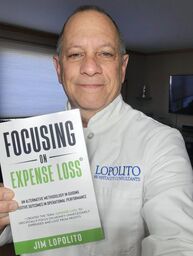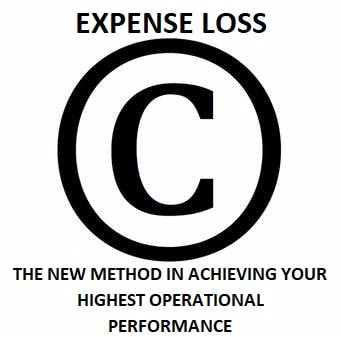My Life in WordsLHC - THE STORIES OF HOSPITALITY
Jim Lopolito
Lopolito Hospitality Consultants, Corp. (LHC) is a New York based consulting firm that offers Recovery Facilitation, Startup Development, Feasibility Studies, and Forward-Thinking Solutions alongside Operational and Management Practices to businesses in the hospitality industry. Jim Lopolito, President of Lopolito Hospitality Consultants, Corp. is a veteran of the restaurant, country club, catering & concert industries offering expert assistance with club management consulting, restaurant consulting, and other foodservice development. He has worked as an executive chef and general manager and has performed in a consulting role for more than 20 years. His proprietary “Expense Loss Review” program has been a highly sought after resource for his broad client base. |
|
𝑰𝒏 𝒂𝒏 𝒆𝒇𝒇𝒐𝒓𝒕 𝒕𝒐 𝒓𝒆𝒅𝒖𝒄𝒆 𝒃𝒖𝒔𝒊𝒏𝒆𝒔𝒔 𝒄𝒐𝒔𝒕𝒔 𝒑𝒆𝒐𝒑𝒍𝒆 𝒕𝒓𝒚 𝒂𝒍𝒍 𝒔𝒐𝒓𝒕𝒔 𝒐𝒇 𝒕𝒉𝒊𝒏𝒈𝒔, 𝒂𝒏𝒅 𝒐𝒇𝒕𝒆𝒏 𝒕𝒊𝒎𝒆𝒔 𝒕𝒉𝒆𝒓𝒆 𝒊𝒔 𝒏𝒐 𝒄𝒐𝒏𝒔𝒊𝒅𝒆𝒓𝒂𝒕𝒊𝒐𝒏 𝒇𝒐𝒓 𝒘𝒉𝒂𝒕 𝒊𝒔 𝒂𝒄𝒕𝒖𝒂𝒍𝒍𝒚 𝒈𝒐𝒊𝒏𝒈 𝒐𝒏 𝒂𝒏𝒅 𝒕𝒉𝒆 𝒘𝒓𝒐𝒏𝒈 𝒄𝒐𝒔𝒕𝒔 𝒂𝒓𝒆 𝒄𝒖𝒕. 𝐄𝐱𝐩𝐞𝐧𝐬𝐞 𝐋𝐨𝐬𝐬 𝐢𝐬 𝐭𝐡𝐞 𝐯𝐚𝐫𝐢𝐚𝐧𝐜𝐞 𝐛𝐞𝐭𝐰𝐞𝐞𝐧 𝐦𝐨𝐧𝐞𝐲 𝐭𝐡𝐚𝐭 𝐢𝐬 𝐜𝐮𝐫𝐫𝐞𝐧𝐭𝐥𝐲 𝐮𝐧𝐬𝐲𝐬𝐭𝐞𝐦𝐚𝐭𝐢𝐜𝐚𝐥𝐥𝐲 𝐞𝐱𝐩𝐞𝐧𝐬𝐞𝐝 𝐨𝐧 𝐩𝐫𝐨𝐝𝐮𝐜𝐭, 𝐬𝐞𝐫𝐯𝐢𝐜𝐞𝐬, 𝐨𝐫 𝐞𝐪𝐮𝐢𝐩𝐦𝐞𝐧𝐭 𝐚𝐧𝐝 𝐭𝐡𝐞 𝐚𝐜𝐡𝐢𝐞𝐯𝐚𝐛𝐥𝐞 𝐚𝐦𝐨𝐮𝐧𝐭 𝐨𝐟 𝐞𝐱𝐩𝐞𝐧𝐬𝐞 𝐫𝐞𝐝𝐮𝐜𝐭𝐢𝐨𝐧 𝐭𝐡𝐚𝐭 𝐢𝐬 𝐩𝐨𝐬𝐬𝐢𝐛𝐥𝐞 𝐨𝐫 𝐢𝐧𝐭𝐞𝐫𝐩𝐫𝐞𝐭𝐞𝐝 𝐭𝐡𝐫𝐨𝐮𝐠𝐡 𝐚 𝐫𝐞𝐯𝐢𝐞𝐰 𝐚𝐧𝐝 𝐟𝐢𝐬𝐜𝐚𝐥𝐥𝐲 𝐚𝐩𝐩𝐥𝐢𝐞𝐝 𝐦𝐞𝐭𝐡𝐨𝐝𝐬 𝐨𝐟 𝐬𝐩𝐞𝐧𝐝𝐢𝐧𝐠 𝐛𝐞𝐡𝐚𝐯𝐢𝐨𝐫 𝐚𝐧𝐝 𝐟𝐨𝐫𝐰𝐚𝐫𝐝-𝐭𝐡𝐢𝐧𝐤𝐢𝐧𝐠 𝐝𝐞𝐜𝐢𝐬𝐢𝐨𝐧𝐬. The theory of Expense Loss occurs when behavior is disorganized and money is expensed without regard to the benefits of considering alternatives, along with possible long term consequences of decisions made. Consider the fact that any money you expense unnecessarily is lost and this lost expense reduces your profits. Attempts to reduce spending is nothing new, however the design of my term “Expense Loss” takes a new twist into reducing expenses by using the specific amount that is determined to be overspent (Overspent: the difference between what was spent and what should have been spent) as the focus in the understanding to improve profits. A common standpoint in the spending decision process is the “cost side” (what will this item will cost me in making this decision) instead of the “lost side” (the amount calculated as overspent). When going through a spending decision process you should ask yourself what your lesser expense can be by considering alternatives and forward-thinking to your decision, which is not a calculation many look at. The viewpoint of Expense loss is; what is the amount determined lost as a result of decisions that are reducing profits, whether monetary or operational and has this become a constant to loss due to procedures in the business that have become common behavioral practice. Very often reasons for lost profits occur because staff, manager, or owner is busy concentrating on building and running the business and the payment of invoices, making quick decisions, and doing business, as usual, becomes routine without a thought to other options. Failure to maintain a constant review and evaluation of expenses will always have a negative effect on profits and result in Expense Loss, and very possibly and ultimately loss of your business. If you are in a business that expenses money on equipment, maintenance, repairs, sell-able product, food and beverage, fertilizer, chemicals, water, oil, electricity, and other material goods, and you are not concentrating on Expense Loss, you are wasting money unnecessarily. Expense Loss is about understanding overspending practices that may be occurring and resolving these issues and adding more profits to your company. 𝐄𝐱𝐩𝐞𝐧𝐬𝐞 𝐋𝐨𝐬𝐬 𝐡𝐚𝐬 𝐂𝐨𝐩𝐲𝐫𝐢𝐠𝐡𝐭 𝐍𝐮𝐦𝐛𝐞𝐫 𝐓𝐗 𝟖-𝟕𝟖𝟐-𝟒𝟑𝟔 𝑨𝒍𝒔𝒐 𝑹𝒆𝒂𝒅 𝑬𝒙𝒑𝒆𝒏𝒅𝒊𝒕𝒖𝒓𝒆 𝑩𝒆𝒉𝒂𝒗𝒊𝒐𝒓 𝑴𝒂𝒏𝒂𝒈𝒆𝒎𝒆𝒏𝒕: https://www.linkedin.com/pulse/expenditure-behavior-management-jim-lopolito-1c 𝑾𝒂𝒕𝒄𝒉 "𝑬𝒙𝒑𝒆𝒏𝒔𝒆 𝑳𝒐𝒔𝒔" 𝑽𝒊𝒅𝒆𝒐: https://youtu.be/Bvy1XazC3g0 AuthorJim Lopolito is President of Lopolito Hospitality Consultants, Corp. (LHC). LHC is a New York based consulting firm that provides forward-thinking review and solutions to businesses in the hospitality industry. Concentrations in advisory services are available to restaurants, golf and country clubs, caterers, and other foodservice businesses. Jim Lopolito, President of LHC is also an active consultant with Cayuga Hospitality Consultants (CHC). Being an active member with CHC further enhance LHC’s portfolio offerings. Write something about yourself. No need to be fancy, just an overview.
0 Comments
Leave a Reply. |


